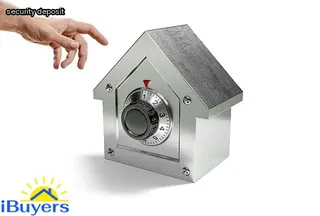West Virginia landlords need to understand the laws surrounding tenant abandoned property. If a tenant leaves personal possessions behind, the landlord must follow specific procedures outlined in West Virginia Code § 37-6B-
First, landlords must make a reasonable effort to notify the tenant of their right to reclaim abandoned property and provide a reasonable time period for them to do so. If the tenant does not retrieve the items within that time period, the landlord is then required to store or dispose of these items in accordance with state law. In some cases, a landlord may be able to recoup certain costs associated with disposing of these items from tenants’ security deposits; however, this must also be done in accordance with state law. Landlords should also keep detailed records and receipts of any costs incurred as well as any attempts made to contact the tenants regarding their abandoned property. It is important for West Virginia landlords to stay up-to-date on their state’s landlord/tenant laws when it comes to handling tenant abandoned property in order to stay compliant and avoid legal issues.

As a landlord in West Virginia, you must understand the rights and responsibilities of both landlords and tenants when it comes to handling tenant abandoned property. Landlords are required to store the property for at least 30 days before disposing of it.
If a tenant's rent is current or up to date, the landlord is obligated to send notice of abandonment via certified mail at least 15 days prior to disposal of the property. Tenants have the right to reclaim their possessions if they pay all outstanding rent, late fees, and any other associated costs within 30 days of receipt of the notice.
If a tenant fails to reclaim their possessions within this time period, the landlord has the legal right to dispose of or sell said property in accordance with state law. It is important for landlords in West Virginia to be aware of their rights and responsibilities in order to handle tenant abandoned property properly.
In West Virginia, terminating a lease agreement is a legal process that requires adherence to the state’s landlord-tenant laws. As a landlord, it’s important to be aware of your rights and responsibilities when it comes to ending a tenancy.
To terminate a lease agreement in West Virginia, the landlord must provide the tenant with written notice of termination in accordance with state law. The amount of notice required varies depending on the type of lease.
The tenant must then vacate the property within the time period specified by law or face eviction proceedings. Landlords should ensure they have all necessary documentation, such as proof of mailing and receipt of notice, if they choose to pursue an eviction action against their tenant.
It is also important for landlords to know how to handle any abandoned property left behind by tenants after their lease has been terminated. By familiarizing themselves with West Virginia's landlord-tenant laws, landlords can ensure that their rights are protected during this process.

When evicting a tenant in West Virginia, landlords must follow best practices to protect themselves from potential legal issues. It's important to have a clear and written lease agreement that outlines the specific rules and regulations for tenants.
Landlords should also be aware of the West Virginia Security Deposit Statute which states that tenants are entitled to a full return of their security deposits within 60 days of vacating the premises. Furthermore, landlords should familiarize themselves with local laws regarding tenant notification requirements prior to eviction proceedings.
Additionally, they should document all communication regarding the tenant's eviction as well as any attempts to contact them. Finally, if a tenant abandons their property after eviction, landlords must adhere to state laws when handling the abandoned property in order to avoid any potential legal implications.
Understanding abandonment rules in West Virginia is an important consideration for landlords when it comes to tenant abandoned property. In the state, a landlord must be mindful of both the West Virginia Landlord Tenant Act and the Uniform Residential Landlord Tenant Act (URLTA).
According to these statutes, if a tenant abandons property in the rental unit, then the landlord must take certain steps to protect their own interests. First, they must make a reasonable effort to notify the tenant that they are abandoning their property and give them an opportunity to retrieve it.
If this effort fails, then the landlord can either sell or dispose of the property in accordance with applicable laws. Additionally, any money earned from a sale of abandoned property must be applied towards any unpaid rent owed by the tenant before any other debts can be paid.
Finally, all remaining proceeds should be held for at least one year in case a tenant requests it back. It is essential that West Virginia landlords understand these rules related to handling tenant abandoned property so they can ensure they are fully compliant with all applicable laws and regulations.

West Virginia landlords must be aware of the laws governing tenant abandoned property when evicting a tenant. After a landlord legally evicts a tenant, they have the right to take possession and control of all property that was left behind by the former tenant.
To do this, landlords must properly store or dispose of any abandoned possessions according to West Virginia state law. This includes any personal items, such as furniture, clothing, appliances, and other belongings.
Landlords should also make sure to provide written notice to the tenant of their intention to take possession of the items before disposing or selling them. Additionally, landlords are responsible for properly documenting each item removed from the rental unit and keeping these records for at least two years after the eviction process is completed.
Following these steps is essential in ensuring compliance with West Virginia’s laws on handling tenant abandoned property after an eviction so that both landlords and tenants can protect their rights in these situations.
In West Virginia, landlords are responsible for properly disposing of any tenant abandoned property according to state law. This includes determining if the property is considered abandoned, taking inventory of the items left behind, and thoroughly documenting the process.
After declaring the property as abandoned, landlords must provide written notice to the tenant informing them that they have 30 days to claim their belongings. If there is no response or contact from the tenant during this time, then it is up to the landlord to decide how and when to dispose of the property.
They may either hold a public sale, donate it to charity or discard it according to local laws. Landlords should also keep all records of notification attempts and evidence of disposal in case disputes arise from tenants or other parties.
It is important for them to understand their legal obligations when dealing with abandoned possessions so that they can protect their own interests and those of their tenants.

In West Virginia, landlords have certain obligations when it comes to rental housing and assistance animals. Under the Fair Housing Act, a landlord may not refuse to make reasonable accommodations in policies or practices for tenants with disabilities who require the use of an assistance animal.
This includes waiving no pet policies and allowing tenants to keep their animal in the rental space without paying any additional pet deposit or fee. It is also important to note that landlords cannot ask for proof of a disability or require that the animal be specially trained or certified as an assistance animal; however, they can ask if the animal is required due to a disability and what work or task it has been trained to perform.
Lastly, West Virginia law requires that landlords provide reasonable accommodation for assistance animals even if there is a no-pet policy in effect.
In West Virginia, if a landlord has filed an eviction case in magistrate court and lost, they can appeal the decision to circuit court. To do so, the landlord must file a notice of appeal with the clerk of the circuit court within ten days of the magistrate’s ruling.
The landlord must also include a copy of the docket sheet from the magistrate court as well as pay a filing fee. During this time period, it is important for landlords to understand that tenant abandoned property should be properly taken care of.
According to state law, if there is any property left behind by tenants after an eviction or abandonment, landlords should take reasonable steps to store them until either reclaimed by tenant or disposed of according to legal statutes. If proper steps are not taken when handling tenant abandoned property during an eviction process in West Virginia, it could lead to legal ramifications for landlords down the line.

In West Virginia, landlords are subject to various laws and regulations regarding how to handle tenant abandoned property. These laws establish the rules for when and how a landlord must provide notice to the tenant of their intentions to dispose of the abandoned property.
The landlord must give written notice to the tenant that they intend to dispose of their property at least 10 days before actually disposing of it. This notice should include a description of the property, a list of any charges associated with storage or disposal, and state that the tenant has 10 days to take possession of their belongings before they are disposed of.
Additionally, if the tenant does not take possession within 10 days, the landlord may then sell or otherwise dispose of the property as they see fit. Ultimately, these notices help ensure that both parties adhere to West Virginia's landlord-tenant law when dealing with tenant abandoned property.
When it comes to tenant abandoned property, West Virginia landlords must follow specific laws. The landlord is authorized to enter the premises when a tenant has left belongings behind and take possession of them.
However, they must adhere to the Landlord Tenant Law in West Virginia which outlines what they are allowed to do. The landlord is required to provide tenants with written notice of their intent to enter the rental unit prior to entry and must also give at least 48 hours’ notice before entering unless the tenant has given their consent for an earlier time.
Entry is limited to regular business hours between 8am and 8pm, unless otherwise agreed upon by both parties. In addition, re-entry must not be used as a means of harassment or interfered with any of the tenant's rights under applicable law.

It is essential for West Virginia landlords to understand the importance of tenant screening background checks. A thorough screening process can help identify potential risks and liabilities associated with a tenant, such as past evictions or criminal activity.
By conducting a thorough background check on all prospective tenants, landlords can protect themselves from costly financial and legal issues down the road. In addition to criminal history and eviction records, landlords should also look into recent credit reports, employment history, references, and income information.
This helps to ensure that a tenant has the financial means to pay rent on time, as well as meet any other obligations related to their lease agreement. Lastly, it is important for landlords in West Virginia to familiarize themselves with state laws surrounding tenant abandoned property.
As a landlord, they are responsible for handling these items in an appropriate manner and following all relevant regulations.
For West Virginia landlords, understanding the complexity of landlord-tenant laws is essential. Knowing the legal implications and responsibilities surrounding tenant abandoned property can be especially challenging.
It’s important to know that landlords are not allowed to keep any personal property left behind by tenants without a court order. Landlords must also provide proper notice in advance of disposing of abandoned items and follow all applicable statutes when it comes to selling or destroying the property.
Additionally, if a tenant requests his/her belongings back, a landlord must return them within 10 days. If a landlord feels overwhelmed or unsure of how to handle such matters, seeking legal advice from an experienced attorney is the best option.
An attorney will be able to provide guidance on how to proceed with issues regarding landlord-tenant laws in West Virginia and help ensure that everything is handled properly and lawfully.

Under West Virginia Landlord Tenant Law, it is important for landlords to understand the official rules and regulations associated with handling tenant abandoned property. The landlord must provide written notice to the tenant of their intent to dispose of this property, which includes specifying a time when the abandonment is considered complete.
The landlord is then allowed to take possession of the abandoned personal property and may either choose to store it or dispose of it as they see fit, unless otherwise specified in the rental agreement. In order to recoup any costs associated with storage or disposal, landlords can deduct these fees from any amounts due from the tenant or can attempt to recover them through civil proceedings.
All remaining items must be turned over to the court if no action is taken by either party within sixty days of abandonment. It is important that landlords familiarize themselves with all applicable laws and regulations regarding tenant abandoned property in order to protect their rights and those of their tenants.
West Virginia landlords must be aware of the laws regarding disputes related to rent, fees, and security deposits when managing tenant abandoned property. It is important for landlords to understand the legalities of any potential disagreements that may arise between them and their tenants in regards to these topics.
Under West Virginia landlord tenant law, it is the responsibility of the landlord to provide a written notice to the tenant at least twenty days before initiating eviction proceedings due to non-payment or late payment of rent. Additionally, landlords are required to keep detailed records of all fees charged and refundable security deposits received from tenants, as well as any deductions taken from said deposits.
Landlords must also provide an itemized list with receipts detailing what deductions were made from security deposits within thirty days after the tenant has vacated the property. Furthermore, landlords cannot require tenants to pay for damages beyond normal wear and tear unless specifically agreed upon in writing prior.
Knowing how to handle disputes related to rent, fees, and security deposits under West Virginia landlord tenant law will help protect both parties involved in a rental agreement.

When it comes to month-to-month tenancies in West Virginia, landlords need to be aware of the notice requirements that must be met in order for a tenancy to be properly terminated. According to West Virginia Code §37-6A-4, written notice of termination must be provided at least 30 days prior to the end of any rental period.
If the tenant fails to provide the required notice, the landlord is then obligated to charge rent for the full 30 days. This means landlords must pay close attention when tenants potentially abandon their property and should not assume that they can simply keep any abandoned goods as their own.
Instead, if a tenant has left personal possessions behind, landlords must make sure they follow proper procedures and allow enough time before disposing of or selling off those items. It is also important for landlords to understand that state law requires them to contact local law enforcement when certain situations arise so that they can avoid potential legal complications down the line.
When it comes to determining what terms are included in the lease or rental agreement in West Virginia, there are a few important things landlords should consider. It's important for landlords to be aware of their rights and responsibilities under the law, including what is considered tenant abandoned property.
Furthermore, it's essential for landlords to know the potential consequences for violating West Virginia landlord-tenant laws. In addition, understanding the process for preparing for a potential eviction in West Virginia is key.
Lastly, tenants may have legal recourse if their landlord breaches the contract and can sue their landlord in some cases. Knowing these factors can help landlords take proactive steps to ensure they comply with all rules and regulations when handling tenant abandoned property.
In West Virginia, landlords must know how long a tenant's property can remain on the premises before it is considered abandoned. According to state law, a landlord must wait at least fifteen days before taking any action with the property.
After this period of time has passed, the landlord may dispose of or store the property as they see fit. The landlord must also provide written notice that describes the tenant's right to reclaim their belongings and how long they have to do so.
In addition, the notice should include a warning that failure to reclaim the items will result in disposal or storage by the landlord. By being aware of these legal obligations, landlords can be sure to act within their rights when dealing with tenant abandoned property in West Virginia.

No, West Virginia Landlords cannot evict a tenant without a court order.
In accordance with the West Virginia Residential Landlord and Tenant Act, landlords must provide tenants with written notice of their intent to terminate tenancy and must obtain an eviction order from the court in order to begin any legal action against a tenant.
If the tenant fails to respond to the eviction notice or fails to vacate the property after receiving an eviction notice, then the landlord can take further steps by filing an unlawful detainer action in court.
Additionally, if a tenant abandons their property before an eviction is completed, then landlords need to understand how they should handle any abandoned property left behind by the tenant.
As a tenant without a lease in West Virginia, you have several rights that you should be aware of. You are entitled to a safe and secure living space, and the landlord must uphold the health and safety standards set by state law.
This includes providing clean, well-maintained dwellings with working utilities, such as heat and water. Additionally, your landlord must not interfere with your right to quiet enjoyment of your home or enter without permission or proper notice.
In case of eviction due to nonpayment of rent, the landlord is required to give you written notice before starting any legal action against you. Furthermore, if you abandon the property without giving notice to the landlord, they have certain rights when it comes to handling your abandoned belongings.
It is important for landlords in West Virginia to know their rights and responsibilities when dealing with tenant abandoned property.
A 30-day notice to vacate in West Virginia is a written communication from a landlord to their tenant informing them they must vacate the premises within thirty days. This notice is required by law when ending a tenancy or when the tenant has violated lease terms and the landlord wishes to terminate the agreement.
In either case, it’s important for West Virginia landlords to understand their rights and obligations when it comes to tenant abandoned property. Under state law, if a tenant fails to remove all of their belongings before vacating the rental unit, landlords must provide an additional 14-day grace period after they receive the 30-day notice in order for tenants to retrieve any remaining items.
During this time, it’s essential that West Virginia landlords handle abandoned property carefully and properly.
A: According to West Virginia Landlord-Tenant Law, when a tenant abandons their rental property, the landlord must make a reasonable effort to reach out to them in order to obtain any security deposits that may be due. If the tenant does not respond within a reasonable amount of time, the landlord is then allowed to dispose of any remaining personal property left behind. Tenants are also advised to carry renters insurance in case of abandonment or other damages that may occur during their tenancy.
A: According to the West Virginia Landlord-Tenant Laws, landlords are required to make reasonable attempts to return any security deposits owed to the tenant and must also attempt to re-rent the property. If successful, the landlord is not liable for any resulting damages or unpaid rent from the original tenant.